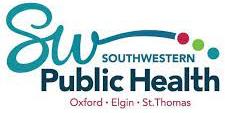4.7 Canada’s Food Guide
Canada’s Food Guide provides information about the main food groups of fruits and vegetables, whole grains, and proteins. The guide also contains additional information to support Canadian’s in making healthy food choices for themselves and those in their care. Nutritional information is provided, including healthy eating practices, sources for nutrients, cultural food traditions, nutrition labels, recipes, and many other resources. Canada’s Food Guide provides an excellent foundation to help educators understand the basics of nutrition and healthy eating practices.
Canada’s Food Guide provides important information for educators and dietary planners as they develop menus and establish healthy eating routines for young children in early years settings. Dietary guidelines are outlined in Canada’s Food Guide to help set the foundation for healthy eating practices, beginning from a young age. Educators are in a position of influencing healthy eating in young children, so it is pertinent that educators have knowledge of current research around healthy eating guidelines.
Read
Read Canada’s dietary guidelines for healthy eating to help set the stage for working with children in the early years, who are dependent on adults for dietary guidance.
Read the following link regarding ways to incorporate cultural food traditions and healthy eating into your personal life and professional practice as an educator.
Dietary planners develop menus in consultation with early years administrative staff, families, educators, communities, dietitians, and public health. Canada’s Food Guide is a great starting point for learning more about healthy eating practices. Families are an excellent resource for sharing recipes and cultural traditions around food. Embedding these foods and traditions into early years settings aid in creating a more culturally responsive space. Children and educators will develop a stronger sense of belonging if their cultural food practices are part of the daily meal times.
Canada’s Food Guide is also available in multiple languages so educators may want to direct families to the important link below to access this resource in languages other than English.
Nutritional plans may be developed for children who need additional support during mealtimes or for children who have a specialized diet. Early years settings collaborate with organizations specializing in inclusive practices for children to ensure the nutritional needs are met for each child requiring additional supports. Each licensed child care centre is partnered with a resource consultant. The resource consultant may be involved with a family to coordinate interprofessional care for their child. Individualized family service plan meetings are implemented to share important information about a child from multiple perspectives. Educators, early years administrators, families, dietitians, therapists, medical professionals, and resource consultants develop goals for children and share updates regarding the implementation of measures to support children while in early years settings. School transition plans are made when a child is transitioning from an early years setting to a school setting. This requires collaboration between both settings to ensure a smooth transition for children and families. Resource consultants in our local area may be part of the following organizations, providing services to local early years settings.
Sources (used under fair dealing. All Rights Reserved.)





